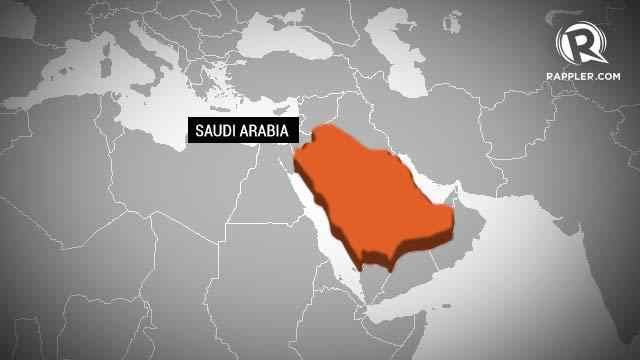SUMMARY
This is AI generated summarization, which may have errors. For context, always refer to the full article.

RIYADH, Saudi Arabia (UPDATED) – Sunni Muslim Saudi Arabia executed Saturday, January 2, a prominent Shiite cleric, who had been behind anti-government protests, drawing angry condemnation from Shiite-majority Iran and Iraq.
And the EU expressed concern about possible “dangerous consequences” in a region already fraught with sectarian tensions, just hours before Riyadh summoned Iran’s envoy to complain about Tehran’s “aggressive” remarks.
Nimr al-Nimr, 56, was executed along with 46 other men, including Shiite activists and Sunnis accused of involvement in Al-Qaeda killings, the interior ministry said.
That sparked demonstrations in at least one city in oil-rich Eastern Province, where Shiites complain of marginalization, as well as in Bahrain, Iran and Iraq.
The interior ministry said the men had been convicted of adopting the radical “takfiri” ideology, joining “terrorist organizations” and implementing various “criminal plots”.
An official list published included Sunnis convicted of involvement in Al-Qaeda attacks that killed Saudis and foreigners in 2003 and 2004.
Some of them had been convicted of taking part in May 2003 attacks on expatriate compounds in Riyadh that killed 35 people, nine of them Americans, the ministry said.
Others were involved in 2004 attacks on a housing complex in the eastern city of Khobar, in which 22 people were killed, most of them foreigners, and other assaults.
Among them was Fares al-Shuwail, described by Saudi media as Al-Qaeda’s top religious leader in the kingdom.
Notably absent from the list, was Nimr’s nephew, Ali. He was arrested at the age of 17 and allegedly tortured during detention before being sentenced to die, sparking fury from rights watchdogs and the United States.
‘Oppression and execution’
All those executed were Saudis, except for an Egyptian and a Chadian.
Some were beheaded, while others were shot by firing squad, said ministry spokesman Mansur al-Turki.
Executions have soared in the country since King Salman ascended the throne last January, with 153 people put to death in 2015, nearly twice as many as in 2014.
Iranian foreign ministry spokesman Hossein Jaber Ansari said: “The Saudi government supports terrorist movements and extremists, but confronts domestic critics with oppression and execution.
It will “pay a high price for following these policies,” the official IRNA news agency quoted him as saying.
Turki said Iran’s reaction was “irresponsible”, and Riyadh summoned Tehran’s envoy in protest.
The foreign ministry “handed the Iranian ambassador… a stern protest letter over the aggressive Iranian statements on the legal sentences carried out today against terrorists in the kingdom,” said a statement published by the official SPA news agency.
It expressed its “complete rejection of these aggressive statements, which it considers a flagrant interference in the kingdom’s affairs”.
Tehran ally Hezbollah said Saudi Arabia’s rulers are “global criminals” and denounced Nimr’s execution as a “heinous crime”.
Rights groups have repeatedly raised concern about the fairness of trials in Saudi Arabia, where murder, drug trafficking, armed robbery, rape and apostasy are all punishable by death.
In Brussels, EU foreign policy chief Federica Mogherini said the case “raises serious concerns regarding freedom of expression and the respect of basic civil and political rights”.
It also has “the potential of enflaming further the sectarian tensions that already bring so much damage to the entire region, with dangerous consequences,” a statement said.
Iran’s Basij student militia, connected to the country’s elite Revolutionary Guards, called for a demonstration Sunday outside the Saudi embassy in Tehran.
Riyadh warns over security
Riyadh’s statement said it holds Tehran “completely responsible for protecting” the kingdom’s missions in Iran and all their employees from any “aggressive acts”.
In Saudi ally Bahrain, police used tear gas to disperse dozens of youths from the majority Shiite population protesting the executions.
And prominent Iraqi Shiite lawmaker Khalaf Abdelsamad called for the closure of Riyadh’s embassy and urged the government to expel its ambassador.
“The execution of Sheikh al-Nimr will have serious consequences and bring about the end of the Al-Saud (royal family’s) rule,” his office said.
In Yemen, where the kingdom is leading a coalition against Shiite rebels, the religious scholars association controlled by them condemned the execution.
Reactions will not be limited to “angry protests; they will turn into a sweeping revolution” against Saudi authorities, said the statement published on the rebels’ sabanews.net website.
Nimr’s brother, Mohammed, said he had hoped that “wisdom and a political solution” would prevail to spare the cleric’s life.
And he warned that his execution could trigger “negative reactions” inside and outside Saudi Arabia.
“This action will spark anger of (Shiite) youths” in Saudi Arabia, but “we reject violence and clashing with authorities”.
The Bahraini government and the United Arab Emirates voiced support for the conservative kingdom, saying the executions were necessary to confront extremism.
Nimr was arrested in 2012, three years after calling for Eastern Province’s Shiite-populated Qatif and Al-Ihsaa governorates to be separated from Saudi Arabia and united with Bahrain.
The interior ministry had described him at the time of his arrest as an “instigator of sedition”.
A video on YouTube in 2012 showed Nimr making a speech celebrating the 2012 death of then-interior minister Prince Nayef bin Abdulaziz.
“Let the worms eat him,” Nimr had said, while also criticising the rulers of Saudi Arabia and Bahrain, where the Shiite community has also complained of marginalization.
The anti-government protests that erupted in eastern Saudi Arabia five years ago coincided with a Shiite-led protest movement in Bahrain that was later crushed with help from Saudi troops.
Scores of men and women turned out Saturday to protest peacefully in Qatif, some carrying placards bearing Nimr’s photo. – Rappler.com
Add a comment
How does this make you feel?
There are no comments yet. Add your comment to start the conversation.